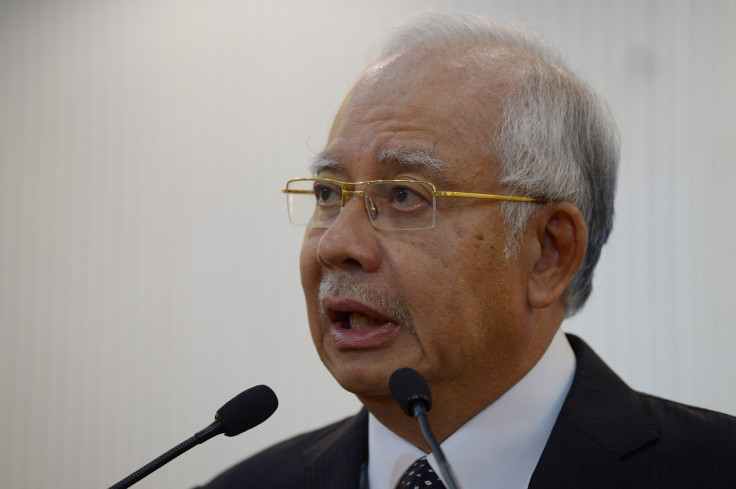Weekend Of Protests Set To Pile Pressure On Malaysia's PM

KUALA LUMPUR (Reuters) - Protesters gathered on Saturday for a two-day rally in Kuala Lumpur to demand the resignation of Prime Minister Najib Razak, bringing to the streets a political crisis over a multi-million-dollar payment made to an account under his name.
The Malaysian leader has weathered weeks of attacks since it was reported that investigators probing the management of debt-laden state fund 1Malaysia Development Berhad (1MDB) had discovered the unexplained transfer of more than $600 million.
Protesters hope to spark a people's power movement forcing Najib out, but political analysts believe he will retain power.
Security was tightened before the rally. Access to a square where the protesters plan to converge was blocked.
A news portal said on Friday the army may intervene if the crowds get out of hand and a state of emergency is declared. A military spokesman declined to comment on the report.
Kuala Lumpur authorities rejected an application by pro-democracy group Bersih - "clean" in Malay - for a protest permit. Police used water cannon and teargas to disperse protesters at Bersih's last big rally in 2012.
The government has blocked access to Bersih's website and banned wearing of its signature yellow T-shirts under an order prohibiting material prejudicial to public order and security.
The anti-graft movement Transparency International called on the Malaysian governmentto respect the right of citizens to demonstrate peacefully without fear of reprisal.
The government "should listen to the concerns of its people", organization chief Jose Ugazsaid.
NAJIB HAS TIGHTENED GRIP
Analysts say the Bersih movement is unlikely to inspire broad public support because it lacks strong leadership.
"The rally will register as a big protest. But in terms of actual change, I don't think anything will happen immediately," said Wan Saiful Wan Jan, chief executive of the Institute for Democracy and Economic Affairs.
Ibrahim Suffian, director of independent pollster Merdeka Center, said discontent with Najib, who took office in 2009, is concentrated in urban areas and a national survey this month by his group showed a slight majority opposed the rally.
Malaysia's anti-graft agency has said the funds paid into Najib's account were a donation from the Middle East, which came just before a 2013 election, but the identity of the donor has not been revealed.
Najib, 62, has denied wrongdoing and says he did not take any money for personal gain but has tightened his grip on power through a series of deft steps to sideline would-be dissenters.
He sacked his deputy and other ministers who had publicly questioned him, and the attorney-general who was investigating 1MDB was replaced. Authorities suspended two newspapers and blocked access to a website that had reported on 1MDB.
Najib retains significant support from the long-ruling Barisan Nasional coalition and from within his party, the United Malays National Organisation.
The coalition, in power since 1957, lost the popular vote for the first time in 2013 to an opposition alliance that split this year.
(Writing by John Chalmers; Editing by Richard Borsuk)
© Copyright Thomson Reuters 2024. All rights reserved.





















